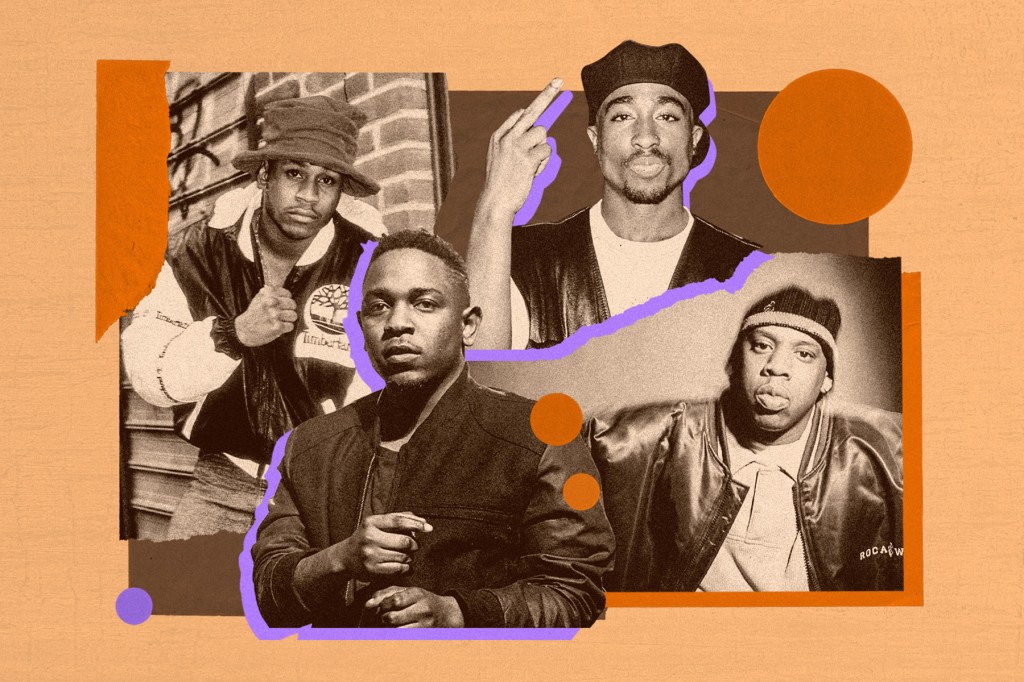In honor of Power Players week, Billboard’s Hip-Hop team celebrates the legendary hip-hop labels that molded the superstars we love.
Clockwise, from top left: LL Cool J, Tupac, Kendrick Lamar, Jay-Z
Mara Ocejo (@maraocejo)
As Hip-Hop shaped the sound of the streets and transformed the music industry, these legendary record labels brought the genre’s vision to life and helped it dominate the world.
The iconic labels listed below have nurtured groundbreaking talent, released countless timeless classics, and played a crucial role in shaping hip-hop’s evolution as both an art form and a movement. Without Death Row Records, there would be no Snoop Dogg; without Bad Boy, no Notorious B.I.G.; without Young Money, no Drake.
The list goes on, but the point is clear: without the right label to steer the ship, many of the rappers we know and love might never have gained the exposure needed to reach superstardom. Before joining Aftermath, Eminem was a struggling battle rapper living in a Detroit trailer park, and Kendrick Lamar might never have risen beyond his Compton roots. The Beastie Boys wouldn’t have been the first rap group to top the Billboard 200 without Def Jam, and Wu-Tang Clan might not have redefined New York hip-hop without Loud Records. Many of the culture’s most visionary labels are just as legendary as the artists they’ve supported — their rags-to-riches stories serving as prime examples of the American Dream.
As the Billboard staff evaluated which labels truly reign supreme, several factors were considered: the label’s longevity, its chart success, cultural impact, influence, and, of course, the number of classic albums they’ve produced. While major labels did influence a lot of these rosters’ ascents, most of the credit ultimately lies with the indies underneath them — so majors won’t be included in this list. Without further ado, here are the 25 most impactful hip-hop record labels of all time.
-
Rawkus Records

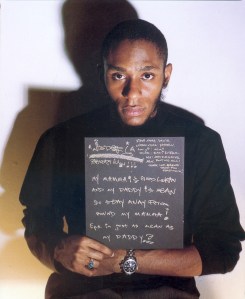
Image Credit: Anthony Barboza/Getty Images Ironically founded by Rupert Murdoch’s son James Murdoch and his college buddies Brian Brater and Jarret Myer, Rawkus played an important role in the mid-to-late ‘90s, as the label gave some of the era’s best underground acts a home. Company Flow’s Funcrusher Plus, Black Star’s Mos Def & Talib Kweli Are Black Star, Mos Def’s Black on Both Sides, Pharoahe Monch’s Internal Affairs, and the classic compilation Soundbombing II were all released before the turn or the millennium. Then when the year 2000 came around and the world didn’t end, Rawkus dropped Big L’s posthumous album The Big Picture and Reflection Eternal’s debut Train of Thought. Eat your heart out, Kendall Roy. — ANGEL DIAZ
Biggest Stars: Black Star, Pharoahe Monch, Mos Def, Talib Kweli, Reflection Eternal, Company Flow
-
Hypnotize Minds Productions
You can still hear Three 6 Mafia’s horrorcore influence in rap today. The group’s DNA is unmissable in A$AP Rocky’s music, as well as Travis Scott’s — and the label was even affiliated with Jelly Roll for a brief period when he was a rapper in the group SNO, alongside BPZ and Hypnotize Mind signee Lil Whyte, which released the 2011 album Year Round. Triple 6 was also the first rap group to win an Oscar, and became the first act to perform at the ceremony when it took home best original song back in 2006. And the impact doesn’t stop there, as the label was once home to influential rappers like La Chat, Gangsta Boo, Lord Infamous and Project Pat, who have all seen a resurgence in interest in recent years thanks to the Internet. Hypnotize Minds is easily the most notable label out of Memphis since Sun and Stax Records. — A.D.
Biggest Stars: Three 6 Mafia, Project Pat, Gangsta Boo, Lord Infamous, La Chat
-
Strange Music Inc.
Strange Music’s independent impact was felt almost immediately after Tech N9ne and Travis O’Guin founded it in 2000. The label served as an oasis for indie artists who didn’t fit neatly into the mainstream regiments, and in turn championed their creative ambitions to a groundbreaking extent. Strange Music Inc. quickly rose to be the biggest independent rap label in history, with artists like Tech N9ne and ¡Mayday! leading the charge. The trailblazing label focused on touring, merchandise and direct-fan engagement, creating a company that endured because of its innovative approach to bonding with its supporters. Throw in the fact that the label blended rock and rap at a time when that was still seen as uncool, Strange Music Inc. is one of the most unique labels out there. — MACKENZIE CUMMINGS-GRADY
Biggest Stars: Tech N9ne Tech N9ne, ¡Mayday!, Krizz Kaliko
-
Collective Music Group (CMG)


Image Credit: Frazer Harrison/Getty Images Though Yo Gotti carved out a fruitful career as a rap artist, cementing himself as a Memphis mainstay in the late 2000s and 2010s, it’s his executive run that may ultimately define his legacy. Under his leadership, CMG (Collective Music Group) blossomed into a powerhouse during the early 2020s, as he stacked the roster with heavy hitters like MoneyBagg Yo, 42 Dugg, EST Gee and Mozzy, flexing his ability to scout stars across regions. His biggest win came in 2022, when the CMG boss snatched up Memphis phenom GloRilla fresh off her rookie explosion, powered by the runaway anthem “F.N.F.,” a breakout Hot 100 hit that made her the label’s crown jewel. – CARL LAMARRE
Biggest Stars: Yo Gotti, GloRilla, Moneybagg Yo, EST Gee, Blac Youngsta
-
Quality Control Music
Co-founded by Pierre “P” Thomas and Kevin “Coach K” Lee, Quality Control Music elevated the Migos to stardom in the mid-2010s, as Atlanta became the rap capital of the world and hip-hop’s centrifugal force. While the Migos were redefining trap and racking up Billboard Hot 100 hits, QC continued to expand its roster and introduce Lil Yachty, Lil Baby and the City Girls into the rap zeitgeist. P and Coach K also signed Cardi B to a management deal in 2018. Baby became one of the torchbearers leading rap into the 2020s and Scooter Braun’s HYBE America reached an agreement to purchase QC for $300 million in 2023. — MICHAEL SAPONARA
Biggest Stars: Migos, Lil Baby, Lil Yachty, City Girls
-
Maybach Music Group (MMG)
After Rick Ross trounced the rap game with a flurry of releases – from 2009’s Deeper Than Rap to his landmark 2012 mixtape Rich Forever – he sought reinforcements to tighten his grip on hip-hop. First came Meek Mill, a battle-tested flamethrower out of Philly. Then came Wale, who Ross helped retool and reignite after his rocky debut Attention Deficit. With a run of Maybach Music compilations, Meek’s rise to superstardom, and Wale’s redemption arc, Ross’ MMG empire stood untouchable at its peak. — C.L.
Biggest Stars: Rick Ross, Meek Mill, Wale, Gunplay, Omarion
-
Shady Records

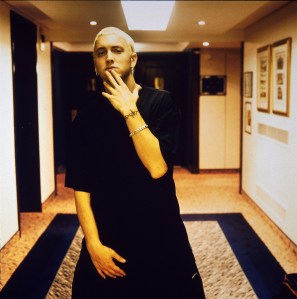
Image Credit: Sal Idriss/Redferns After the explosive success of Eminem’s Slim Shady LP, Em and his longtime manager Paul Rosenberg decided to capitalize on the momentum by creating Shady Records in 1999. Crafted in order to support Em’s Detroit collective D12, Eminem officially unveiled the roster after dropping his classic sophomore effort The Marshall Mathers LP in 2000. The album provided the perfect backdrop for D12 to showcase their newly minted talent, and shortly after they unleashed their own debut Devil’s Night. The groundbreaking soundtrack to 8 Mile further solidified Shady as a label to watch, and it hit a new high when Eminem became drawn to a buzzing new rapper out of New York named 50 Cent.
Inking a joint deal with Shady and Aftermath via Interscope, the G-Unit leader exploded onto the scene with Get Rich or Die Tryin’ in 2003, and the rest was history. Shady Records became a coveted destination for peculiar underground talent, with Yelawolf, Slaughterhouse and more to follow soon after. While Em’s personal struggles with sobriety and 50 Cent’s departure ultimately led to a steep decline in relevance for the roster, distribution deals with Griselda and Eminem’s unrelenting star power have kept Shady in the conversation of impactful labels. — M.C.G.
Biggest Stars: Eminem, 50 Cent, D12, Yelawolf, Slaughterhouse
-
So So Def
Jermaine Dupri played an integral role in puting Atlanta on the map with So So Def. JD effortlessly blended the worlds of hip-hop and R&B with early signings of Kris Kross (“Jump” topped the Hot 100) and Xscape, while Da Brat became the first female rapper to go platinum with her Funkdafied debut album in 1994. Dupri continued to build his legacy producing for legends ranging from Usher to Mariah Carey and Janet Jackson, while signing Jagged Edge and delivering an influx of youth with Bow Wow around the turn of the century.
The Songwriting Hall of Famer also joined the snap craze when bringing Dem Franchise Boyz into the fold, who released their top 10 Billboard Hot 100 “Lean Wit It, Rock Wit It” in 2005. JD later expanded So So Def’s reach into other realms of entertainment with So So Def Global, which launched in 2018. — M.S.
Biggest Stars: Bow Wow, Da Brat
-
Stones Throw Records
Stones Throw was pivotal in providing a home for J Dilla and superduo Madvillain, as the hip-hop veterans really began making a name for themselves in rap’s bubbling underground scene. Dilla’s Donuts, Jaylib’s Champion Sound, and Madvillian’s Madvillainy were all released on the LA-based record label. It was also one of the first labels that offered exclusive direct-to-consumer products like box-set vinyls, and merch like the famous yellow Quasimoto doll smoking a joint while holding a red brick, all via an online store. More recently, Stones Throw signed a new superduo in NxWorries, helping release its critically acclaimed R&B albums Yes Lawd! and Why Lawd? in 2016 and 2024, respectively. — A.D.
Biggest Stars: Madlib, MF DOOM, Madvillain, J Dilla, NxWorries
-
Ruthless Records
Looking for an exit from the drug game, Eazy E founded Ruthless Records in the late 1980s and formed one of the most formidable rap crews in the process with N.W.A. Through that epochal Compton collective, Ruthless launched the careers of hip-hop deities Ice Cube and Dr. Dre, while helping the bring gangsta rap to the mainstream in the process, with a pair of platinum-certified albums. The N.W.A light burned bright and fast before the departures of Cube and Dre, and less than two years before his passing, Eazy pivoted to discover Bone Thugs-N-Harmony in 1993 — who also went on to change the rap landscape, as the Cleveland group released classic albums like 1995’s Billboard 200-topping E. 1999 Eternal. — M.S.
Biggest Stars: N.W.A., The D.O.C., Eazy E
-
Ruff Ryders Entertainment

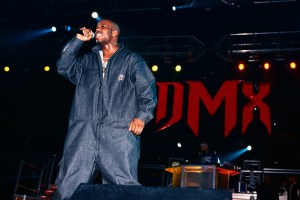
Image Credit: Mitchell Gerber/Corbis/VCG via G Launched in 1988 by siblings Joaquin “Waah,” Darrin “Dee” and Chivon Dean, Ruff Ryders was a family affair, with nephew Swizz Beatz also giving the label an innovative in-house producer. Following a distribution deal with Def Jam, DMX’s street credibility led to a mainstream arrival, and put the label on his back with his 1998 explosion — which included his first two studio albums (It’s Dark and Hell is Hot & Flesh of My Flesh, Blood of My Blood) debuting atop the Billboard 200, “saving” Def Jam, as president Lyor Cohen put it. X’s run continued into the 2000s with three more No. 1 albums, while Ruff Ryders also introduced its First Lady with Eve’s 1999 debut, which landed atop the Billboard 200. Her sophomore Scorpion album took the label to new crossover heights, as it produced the Grammy Award-winning, No. 2-peaking Hot 100 smash single “Let Me Blow Ya Mind” with Gwen Stefani.
Though The LOX was managed by Ruff Ryders, the Yonkers trio didn’t join the label until 1999, leaving behind a turbulent tenure with Bad Boy, and its first release on the label came with 2000’s We Are the Streets. Ruff Ryders released also three compilation albums, the first of which (Ryde or Die Vol. 1) topped the Billboard 200, while laying the foundation for later influential rap crews like G-Unit. — M.S.
Biggest Stars: DMX, Eve, The Lox, Swizz Beatz
-
Murder Inc.
Wins, beef and a conveyor belt of hits powered Irv Gotti’s reign as Murder Inc.’s corporate kingpin. Long before the controversies, his fingerprints were on the late-’90s rise of DMX and Jay-Z, but it was the early 2000s where Gotti truly left his stamp. By pairing Ja Rule’s street tales with Ashanti’s velvet vocals, he built a formula that blurred the line between rap and R&B and dominated the charts in the process. Hot 100 smashes like “Always on Time” and “Foolish” turned Murder Inc. into a melodious juggernaut, while the emergence of Lloyd added another layer of sheen to the label’s glowing run. — C.L.
Biggest Stars: Ja Rule, Ashanti, Lloyd
-
Tommy Boy Records
Founded in 1981 by Tom Silverman, Tommy Boy Records established itself early on as a pivotal record label in hip-hop’s early development. Tommy Boy introduced legendary acts like De La Soul, Queen Latifah, Naughty by Nature and House of Pain, and at times even pioneered the amalgamation of rap with electronic music — as shown by the song “Planet Rock.” The label’s unique roster demonstrated an eagerness for creative experimentation — evident in De La Soul’s groundbreaking album 3 Feet High and Rising. While the label eventually became synonymous with the lawsuit involving Soul’s catalog, Tommy Boy’s peak was something exciting to behold. — M.C.G.
Biggest Stars: De La Soul, Queen Latifah, House of Pain, Coolio, CNN, Naughty By Nature
-
Rap-A-Lot Records
Rap-A-Lot Records played an instrumental role in putting southern rap on the map, which prior to its inception in 1986 was severely overlooked by hip-hop as a whole. The label’s flagship group, Geto Boys, changed that almost immediately. They served as trailblazers for disturbing gangsta rap that explored psychotic episodes and violence with unflinching resolve. Rap-A-Lot also became a platform for Scarface, who is long regarded as one of rap’s greatest talents. The label’s gritty realism and southern swagger helped redefine rap culture in its image, forever solidifying it as one of the most important labels in hip-hop. — M.C.G.
Biggest Stars: Geto Boys, Bushwick Bill, Scarface, Willie D
-
G-Unit Records

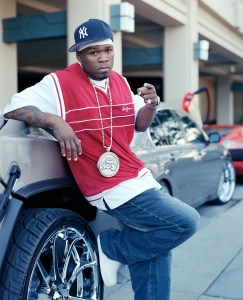
Image Credit: Gregory Bojorquez/Getty Images As a crew, with 50 Cent at its head, G-Unit completely redefined the world of street mixtapes, flooding the underground with project after project in what altogether amounted to some 81 mixtapes, 25 of which were under the G-Unit Radio banner. As a label, G-Unit commercialized that output, as 50 (as part of the group, though not as a solo artist), Lloyd Banks, Young Buck, Tony Yayo — and, for a little while at least, The Game — released the classic posse album Beg for Mercy in late 2003, followed by solo releases by each of the core members in question, all making it the hottest label in hip-hop bar none by 2004. G-Unit’s indomitable run through the first half of the 2000s would ultimately come undone due to internal squabbling, but by then the impact was immeasurable — and hip-hop would never be the same again. — DAN RYS
-
No Limit Records
Founded by Master P in 1990, No Limit’s prolific release schedule was next-level. Thanks to Master P’s rigorous business acumen, he was able to retain full ownership of his masters and music. As a result, No Limit was granted a release flexibility unheard of at the time, and they fully leaned into that freedom.
Following the release of Master P’s triple-platinum debut album Ghetto D in 1997, No Limit exploded right out the gates as a major player in the rap game. With Silkk the Shocker, C-Murder, Mystikal and briefly even Snoop Dogg all at its beck and call, No Limit utilized everyone on its roster, dropping projects almost every month from 1998 to 2000. The flood-the-market approach proved effective at first, garnering dozens of platinum records including Mystikal’s Unpredictable, Silkk the Shocker’s Charge It 2 Da Game and C-Murder’s Life or Death.
That oversaturation inevitably caught up with No Limit, as its popularity steeply waned heading into the 2000s in part due to a lack of polish on its never-ending string of projects. Regardless, from its signature album cover art style to the conversation it ignited surrounding music ownership, No Limit’s impact is undeniable. — M.C.G.
Biggest Stars: Master P, Snoop Dogg, Silkk The Shocker, C-Murder, Mystikal
-
Top Dawg Entertainment (TDE)
Established in 2004 by California native Anthony “Top Dawg” Tiffith, Top Dawg Entertainment quickly found a foothold in Los Angeles’ bustling rap scene. They signed their first acts Jay Rock and Kendrick Lamar right out the gates in 2005, and Ab-Soul and ScHoolboy Q soon followed in 2007 and 2009. While all the rappers debut gained significant buzz in cult-like circles online, a young K-Dot penned a deal with Aftermath and broke onto the Billboard 200 with 2012’s seminal good kid, m.A.A.d city. A year later, the label stepped into the R&B game by signing a young soul singer named SZA. Everyone knows what comes next.
The label’s keen eye for superstars has led to it boasting one of the most respected rosters in hip-hop. as each aforementioned artist has had a thriving career. While K-Dot left TDE in 2022, it’s worth noting he recently won five Grammy Awards and performed a record-breaking show at the Super Bowl LIX Halftime Show with SZA in February. Not to mention that Doechii entered the chat shortly after Kendrick’s departure, giving the label another future superstar. — M.C.G.
Biggest Stars: Kendrick Lamar, Doechii, SZA, ScHoolboy Q, Ab-Soul, Isaiah Rashad
-
Loud Records
Boasting one of the best rosters rap music has ever seen, Loud Records played an important role in helping maintain balance on a mainstream level, as the genre was quickly becoming more commercialized by the day during the ‘90s — and it doesn’t get more street than Wu-Tang and Mobb Deep. It also repped West Coast and southern acts in Cali’s Tha Alkaholiks and Xzibit, and Project Pat, Gangsta Boo and Three 6 Mafia. Within two years, Loud dropped three of the most important albums in rap history in Wu-Tang Clan’s 1993 debut Enter the Wu-Tang (36 Chambers), and Mobb Deep’s The Infamous and Raekwon’s Only Built 4 Cuban Linx in 1995. Though the label’s importance endured into the 21st century — before closing in 2002 and eventually returning in 2007 — Loud would still manage to have a spot on this list if those were the only three albums the label had ever released. — A.D.
Biggest Stars: Wu-Tang Clan, Big Pun, Mobb Deep, Raekwon, Prodigy, The Beatnuts, Xzibit, dead prez, Tha Alkaholiks, Project Pat, Three 6 Mafia
-
G.O.O.D. Music


Image Credit: Kristian Dowling/Getty Images Kanye West launched G.O.O.D. Music (Getting Out Our Dreams) shortly after releasing his debut album The College Dropout in 2004. The first pair of releases on the label netted Grammy glory with John Legend’s Get Lifted and Common’s Be. Ye blossomed into one of rap’s global titans and ushered in a next generation of stars, bringing Kid Cudi and Big Sean on board, as well as launching the solo career of Pusha T in the early 2010s. The label asserted commercial dominance with the release of its Cruel Summer compilation, which included posse cut hits like “Clique,” “Mercy” and “New God Flow.” The 2012 project debuted at No. 2 on the Billboard 200 with 205,000 total album-equivalent units earned in its first week. As part of West’s Wyoming retreat in 2018, where he produced five consecutively released albums, he hopped behind the boards for Pusha T’s DAYTONA, which earned critic acclaim and a nomination for best rap album at the 2019 Grammy Awards. — M.S.
Biggest Stars: Kanye West, Pusha T, Kid Cudi, Big Sean
-
Aftermath Entertainment
The fall of one empire birthed the rise of another. When Dr. Dre left Death Row Records, he began Aftermath Entertainment in 1996 and reshaped hip-hop in his own image. The West Coast maestro struck gold signing Eminem and later 50 Cent, creating a new triumvirate that rivaled his ’90s dynasty alongside Snoop and 2Pac. The results were instant: Eminem is a top-five MC, dead or alive; 50 Cent created one of rap’s landmark albums with 2003’s Get Rich or Die Tryin’; and Dre’s surgical touch elevated the West once more, guiding the careers of The Game and later, Kendrick Lamar. — C.L.
Biggest Stars: Dr. Dre, Eminem, 50 Cent, Kendrick Lamar, Busta Rhymes, The Game, Anderson .Paak
-
Roc-A-Fella Records
Social media will try and trick you into believing Jay-Z was irrelevant during the first half of his rap career; they’ll say that he was never the biggest rapper during his prime. What they don’t tell you is that he was and remains one of the most influential rappers the game has ever seen. Not many rappers had their own record label in 1996; Jay did. Not many rappers could say that they stood toe-to-toe with the likes of Big L and Big on a record; Jay did.
He and his friends Kareem “Biggs” Burke and Dame Dash bet on themselves and formed their own label — and once they were sitting on top of the mountain after the massive success and crossover appeal of Vol. 2… Hard Knock Life, they founded the clothing line Rocawear, which further ingrained the brand into pop culture and gave us the line, “In 18 months, $80 million more,” on the third verse of “U Don’t Know.” They then capitalized off that momentum and had the foresight to sign Beanie Sigel and State Property — along with Cam’ron and the Diplomats — during the early ‘00s, in an effort to keep control of the streets. They also took a chance in giving in-house producer Ye (formerly known as Kanye West) a record deal, then watched as he quickly became the biggest artist in rap. — A.D.
Biggest Stars: Jay-Z, Cam’ron, Diplomats, Kanye West, Beanie Sigel, Memphis Bleek, State Property
-
Bad Boy Records
After getting fired from the equally influential Uptown Records, industrious intern Sean “Puffy” Combs discovered a young Brooklyn rapper by the name of Biggie Smalls with the help of the late DJ Mister Cee and changed rap’s trajectory forever. Regardless of how you feel about Puff, Bad Boy’s fingerprints were all over modern mainstream hip-hop music for at least a decade-plus. Moves like making remixes that became bigger than the original, bringing big-budget music videos to rap, and blending rap and R&B to create a fresh, new sound are all courtesy of Sean Combs and his groundbreaking label.
Bad Boy helped usher in rap’s new era, where the genre went from an American inner-city cultural movement to a worldwide phenomenon, where selling records and going platinum became the norm. Diddy then ventured into fashion with Sean John in 1998 and had the brand in every music video during Bad Boy’s second act — after Big’s untimely passing, and after Mase and the L.O.X. decided to leave the label, adding another element to his then-growing empire. And we can’t forget how G-Dep’s “Let’s Get It” music video introduced the world to the “Harlem shake” dance, years before Baauer gentrified it with his song of the same name. — A.D.
Biggest Stars: Diddy, The Notorious B.I.G., Ma$e, The L.O.X., Craig Mack, Total, 112
-
Cash Money Records


Image Credit: Julia Beverly/Getty Images Cash Money rewrote the handbook for rap labels in the late ’90s and 2000s, powered by the vision of brothers Bryan “Birdman” Williams and Ronald “Slim” Williams. Rooted in New Orleans talent, the label stormed the game with The Hot Boys and the breakout success of Juvenile’s 400 Degreez. But it was Lil Wayne’s transformation into rap’s apex predator that shifted the balance of power. Through his Carter series, he established himself as the best rapper alive, earning both reverence and ubiquity in the 2000s. By 2005, Wayne parlayed that dominance into Young Money Records – a Cash Money joint venture that introduced Drake and Nicki Minaj, solidifying one of the most unstoppable rap dynasties ever assembled. — C.L.
Biggest Stars: Lil Wayne, Drake, Nicki Minaj, The Hot Boys, Juvenile, Birdman
-
Death Row Records
Almost immediately after its inception in 1991, Death Row Records reshaped the landscape of West Coast hip-hop in its image. The label pioneered the G-funk sound and, in turn, blew up the careers of some of rap’s biggest icons. Dr. Dre, Snoop Dogg, the late Tupac Shakur, the label was responsible for some of the biggest albums and artists in hip-hop’s history — including Dre’s game-changing solo bow The Chronic, Pac’s Diamond-certified All Eyez on Me, and Snoop’s superstar breakthrough Doggystyle. At its peak, the label grossed over $100 million and was an impenetrable force in rap.
By the late-1990s, however, it began to steadily decline: Business disputes and personal turmoil perforated the label’s inner circle, and the bloody disputes of the West Coast and East Coast feud soiled Death Row’s reputation. Shakur’s death in 1996, the departures of Dre and Snoop, and the imprisonment of Suge Knight all seemed to be the final nails in the coffin. Snoop Dogg then later purchased the ailing (and bankrupt) label in 2022 and has since sought to rehabilitate its image. Regardless, there was a time where Death Row Records was truly untouchable. — M.C.G.
Biggest Stars: 2Pac, Dr. Dre, Snoop Dogg, Nate Dogg, Jewell, The Lady of Rage, MC Hammer
-
Def Jam Recordings


Image Credit: James Keivom/NY Daily News Archi Simply put: There is no other label in rap’s history that created cultural phenomena quite like Def Jam Recordings. After founding the label in his New York University dorm room in 1983, a young Rick Rubin linked up with Russell Simmons and the rest was history. Almost immediately, the label’s eye for talent was groundbreaking. LL Cool J, The Beastie Boys, Slick Rick, Jay-Z, DMX, Foxy Brown, Kanye West, Ludacris, Jeezy, Public Enemy — the list of stars goes on. While the company sold millions of records and hoovered up accolades, the innovative aspect of Def Jam came from its inherent mission: to take hip-hop from the brink of industry exile and make it the biggest genre in the world.
Even with Rubin’s departure and other business switch-ups along the way — including making Jay-Z CEO in 2004 — the label has consistently reinvented itself over the span of four decades, its legacy forever tied to crafting the next superstar. That trajectory continues today, with acts like Jadakiss and Pusha T continuing to shape rap in their image. Def Jam Recordings succeeded in everything it set out to do, making it the most impactful record label in hip-hop’s history. — M.C.G.
Biggest Stars: Jay-Z, Kanye West, DMX, LL Cool J, Beastie Boys, Jeezy, Public Enemy, Ludacris, Method Man, Redman
